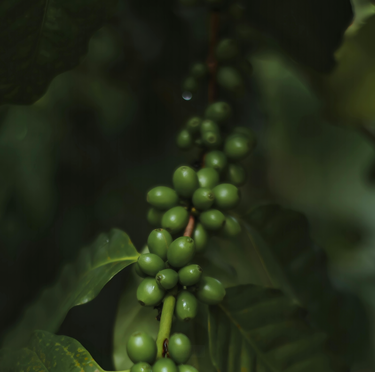Climate change is an undeniable reality of our time, a global phenomenon that is reshaping the way we live, work, and interact with our environment. One of the industries most affected by this change is the coffee industry.
In this blog, we will examine the impact of global warming on coffee production and discuss what steps are being taken to mitigate these effects and ensure that coffee production remains viable in the future.
Climate Change and Coffee Production
Climate change is no longer a distant threat but a present reality that is reshaping the landscape of coffee production. Rising temperatures and unpredictable rainfall are altering the conditions under which coffee plants are grown, leading to decreased yields and increased vulnerability coffee crops face, such as pests and diseases. These changes are not just threatening the livelihoods of coffee farmers but also the quality and availability of coffee for consumers.
The impact of climate change on coffee farms is particularly evident in the coffee belt - a region around the equator where most of the world's coffee plants are grown. Here, even slight changes in temperature and rainfall can have significant effects on coffee production.
As temperatures rise and rainfall becomes more erratic, coffee farmers are finding it increasingly difficult when it comes to growing coffee, leading to decreased yields and increased production costs.
The Effects of Climate Change on the Coffee Industry
The effects of climate change on the coffee industry are far-reaching, affecting all aspects of the industry from production to consumption. Changes in any part of the supply chain can have ripple effects throughout the industry. For instance, decreased yields can lead to increased prices for consumers, which can in turn affect demand for coffee.
Similarly, changes in the quality of arabica coffee and other types of coffee beans can affect consumer preferences, potentially leading to shifts in the global coffee trade market.
The Role of Coffee Brands in Mitigating Climate Change
The coffee industry is not immune to the effects of the climate crisis, but there are steps that can be taken to mitigate these effects and ensure the sustainability of production.
Coffee brands have a unique role in this process, as they often source their coffee directly from farmers. This means that coffee companies have both the resources and the responsibility to take an active role in mitigating climate change.
Approaches coffee brands can take to mitigate climate change include:
• Supporting sustainable coffee farming practices - Coffee brands can support coffee producers in adopting sustainable farming practices that reduce their environmental footprint and preserve the quality of the land. These practices for coffee growers often include techniques such as agroforestry, cover crops, and shade-grown coffee.
• Investment in infrastructure - Coffee brands can invest in infrastructure projects in coffee producing countries to make coffee production more efficient and effective. This includes investing in irrigation systems, greenhouses, and other technologies for tropical agriculture.
• Investing in climate-smart varieties of coffee - Climate-smart coffee plants are designed to be resistant to changing conditions and more resilient in the face of climate change. Coffee brands can invest in research and development of these varieties, helping farmers adapt to a changing climate.
• Working with farmers to build resilience to changing conditions - Coffee brands can also work with farmers to build their capacity and skills in responding to the impacts of climate change. This includes providing access to training, resources, and technology that can help farmers adapt more effectively.
The Future of Coffee and Climate Change
The future of the coffee industry faces great difficulty in light of climate change . However, with the right strategies and investments, this future can still be sustainable. Coffee brands must take an active role in mitigating climate change by supporting sustainable farming practices, investing in infrastructure projects, and working with farmers to build resilience to changing conditions.
Conclusion
Climate change is a reality of our times, and its effects are already being felt in coffee cultivation. It is clear that the future sustainability of coffee production depends on effective mitigation strategies and investments from both farmers and coffee brands.
By taking an active role in supporting sustainable farming practices, investing in infrastructure projects, and working with farmers to build resilience to changing conditions, we can ensure that coffee production remains viable in the face of climate change.
It is only through collective efforts in this area that we can secure a sustainable future for all involved in the coffee supply chain.
Rave Coffee's Commitment to Sustainability
At Rave Coffee, we remain committed to delivering high-quality, sustainable coffee beans whilst supporting the industry's efforts to adapt to climate change. We donate 1% of all sales to environmental causes to support our commitment to sustainability.
We also work directly with farmers and roasters to ensure that the coffee we source is of the highest quality and produced in an environmentally conscious manner.
Try Our Coffee Bean Subscription Today
Start your coffee journey with Rave Coffee today and enjoy freshly roasted, sustainably sourced beans delivered to your door. With a coffee subscription, you can drink coffee while supporting farmers and the environment, all in one!







I am from Kent in England and have visited the coffee zone and do hope climate change can be conquered in the best interests of coffee
Philip on
I am from the origin of coffee land Ethiopia i have more than six years experience in coffee sector including NGO and Government coffee sector. If you want work with me on coffee sustainability and coffee traceability i am looking forward to work with your Rave coffee company.
Bahiru Birhanu on